Fashion's long history with politics has never been so divisive
Performative or impactful?
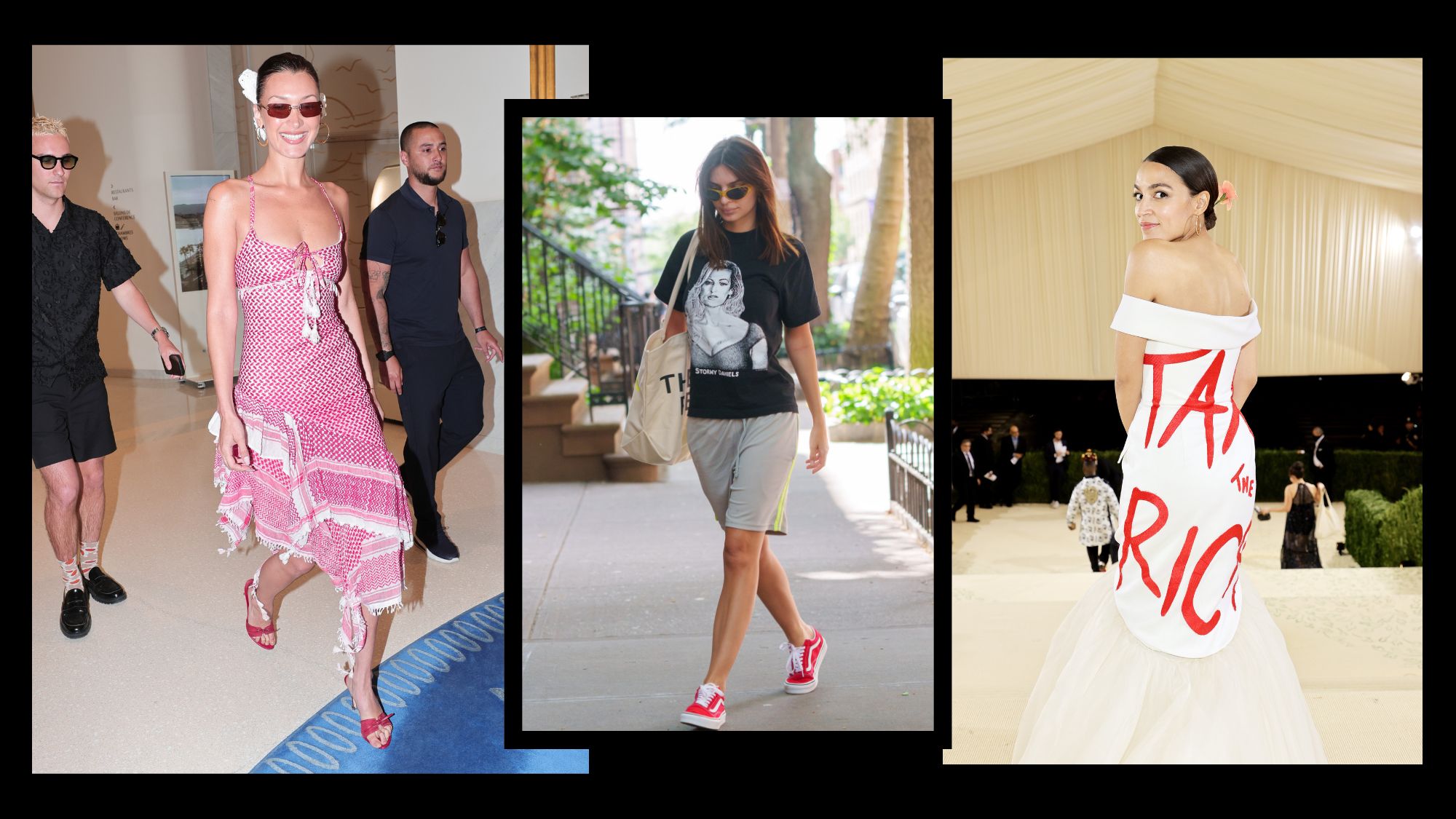
Celebrity news, beauty, fashion advice, and fascinating features, delivered straight to your inbox!
You are now subscribed
Your newsletter sign-up was successful
In 2024, the most impactful way to make a political statement is via your clothing. Politically charged T-shirts are still a ubiquitous sight, fuelled by an increasing anger towards world leaders and their policies. Case in point: the model Emma Ratajowski wearing a Platform T-shirt printed with an image of Stormi Daniels on the day that Donald Trump was pronounced guilty of 34 charges (Daniels had testified for the prosecution). In 2005, a visit to refugee camps in Chad prompted Ryan Gosling to wear a ‘Darfur’ T-shirt to the Teen Choice Awards, in a bid to raise awareness.
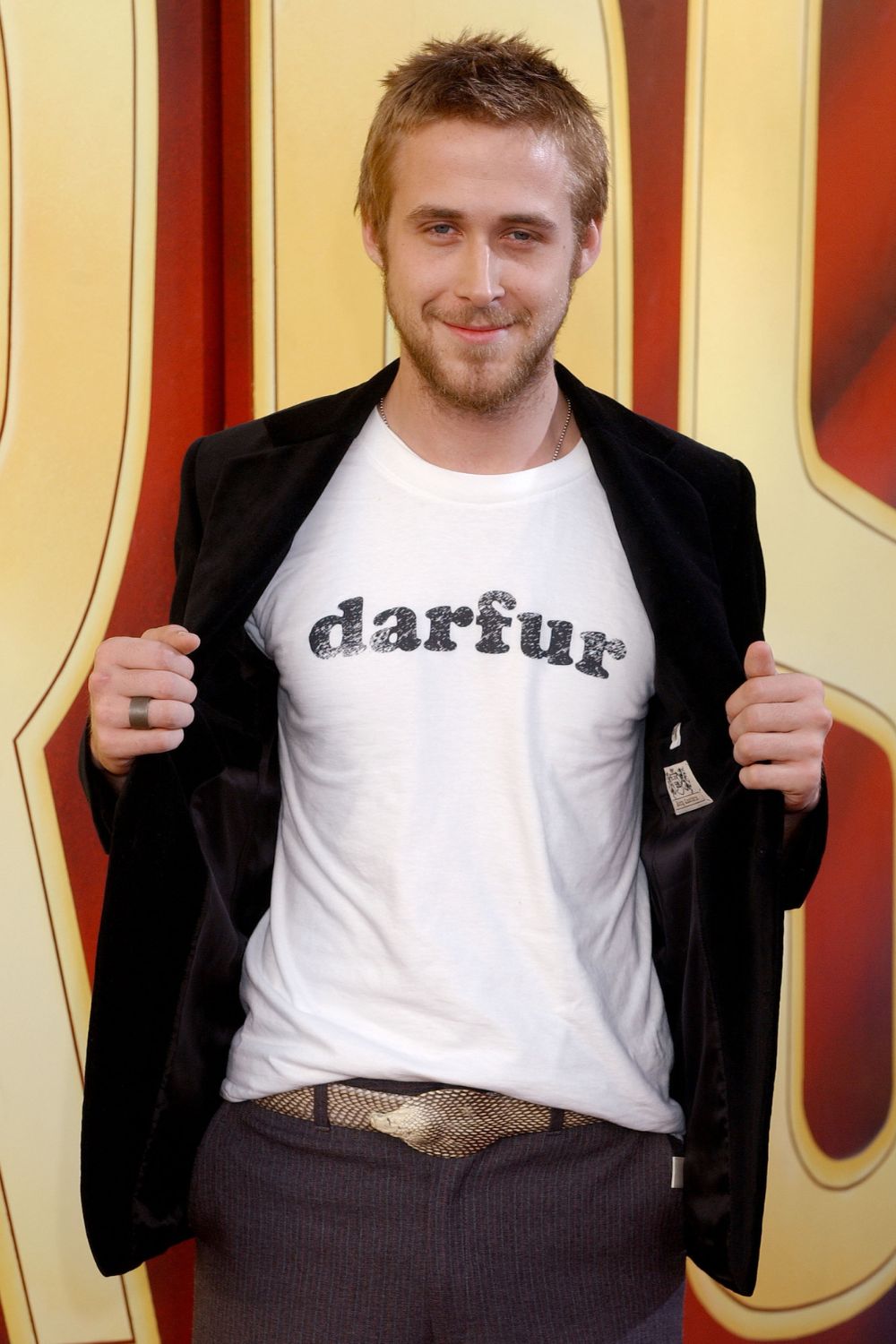
In 2017, in the wake of the #MeToo movement, the catwalks groaned with T shirts featuring feminist slogans, most notably Dior’s “We Should All Be Feminists,” inspired by Chimamanda Ngozi Adichie’s book of the same name. In 2021, Alexandria Ocasio-Cortez attended the Met Gala in a Brother Vellies gown featuring the words “Tax the Rich”, a stunt that many condemned as ‘tone deaf’. Ocasio-Cortez was unrepentant, maintaining it was a way of making the conversation front of mind.
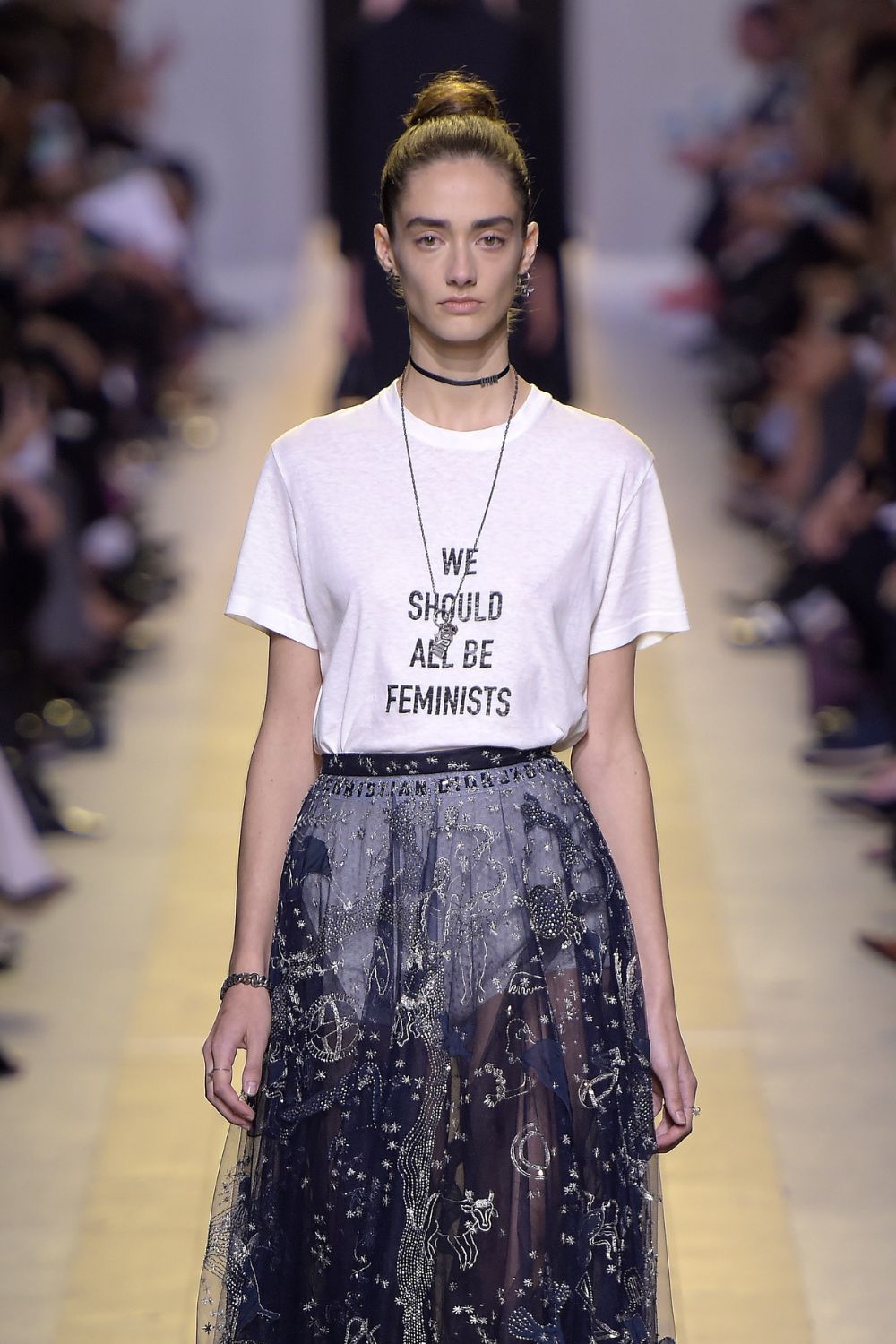
This was certainly the case at Cannes Film Festival, where Bella Hadid took to the Croisette in a distinctive red and white printed dress constructed from traditional keffiyeh scarves. A vintage piece designed in 2001 by Michael and Hushi (who also made Carrie Bradshaw’s black and white keffiyeh halter top worn in season four of Sex and the City), it was further proof, if any were needed, of where the model’s allegiances lie. Hadid’s father, Mohamed, was born in Palestine.
Hadid wasn’t the only attendee to make a sartorial statement about the Gazan war. The British actress Pascale Kann wore a dress emblazoned with the word “Palestine” in Arabic, designed by the Palestinian brand Trashy Clothing. A more oblique and unconfirmed example was Cate Blanchett’s Haider Ackerman x Jean Paul Gaultier gown, whose colours seemed to echo that of the Palestinian flag. It was all a far cry from New York’s high-profile Met Gala, held three weeks before Cannes, where the only form of protest took place on the streets outside.
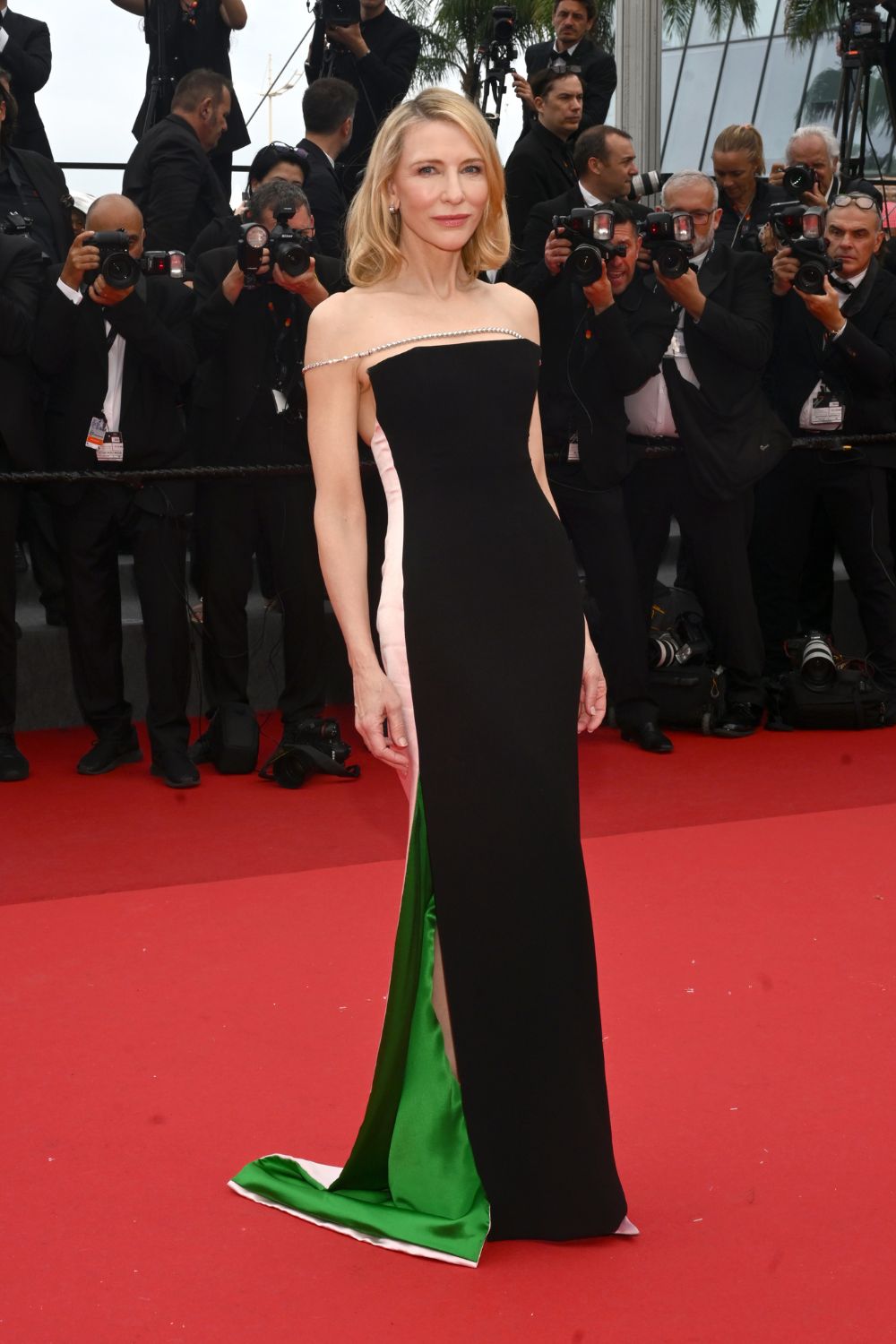
Fashion has always been political. In the middle ages, laws prevented commoners from dressing above their station, while in the 1900s, the suffragettes wore a purple, white and green sash to symbolise their struggle as they campaigned to secure women’s right to vote. When the designer Katharine Hamnett wore a “58% Don’t Want Pershing” T-shirt to meet prime minister Margaret Thatcher at a Downing Street reception in 1984, she kick-started an era in which T-shirts became cultural signposts; visible ways of broadcasting your message via a stylish medium.
While using fashion as a tool to shed light on a particular social or geopolitical issue is nothing new, it has rarely felt more divisive. Scrolling through social media, no-one could fail to be shocked by harrowing images of the war raging in Gaza, or jarred by their juxtaposition between glamorous images of A-listers at an awards ceremony. At the 2024 Oscars, Billie Eilish, Mark Ruffalo, Ramy Youssef and Ava DuVernay were among the celebrities wearing small red pins to signal their support for Artists for Ceasefire, the organisation calling for a permanent end to war in Palestine. Some admired their ‘bravery’, but others dismissed the move as performative; the 2024 equivalent of the black squares that flooded Instagram in 2020, as people tried to show allyship with the #BlackLivesMatter movement.
As Pride Month reigns over the UK, we’re being flooded with rainbow-coloured merch from brands who may or may not donate a percentage of their sales to LGBTQ+ causes. Whether or not you view brands or individuals’ gestures as performative, that so many people are currently aligning silence with complicity has prompted many with a platform to speak out. Bridgerton actress Nicola Coughlan was told that supporting Palestine could harm her career, but as an activist whose late father lived in war-torn countries while serving in the Irish army, staying silent wasn’t an option. By using her Instagram account to encourage followers to support five humanitarian organisations operating in the Gaza strip, she’s estimated to have helped raise over £1million.
Celebrity news, beauty, fashion advice, and fascinating features, delivered straight to your inbox!
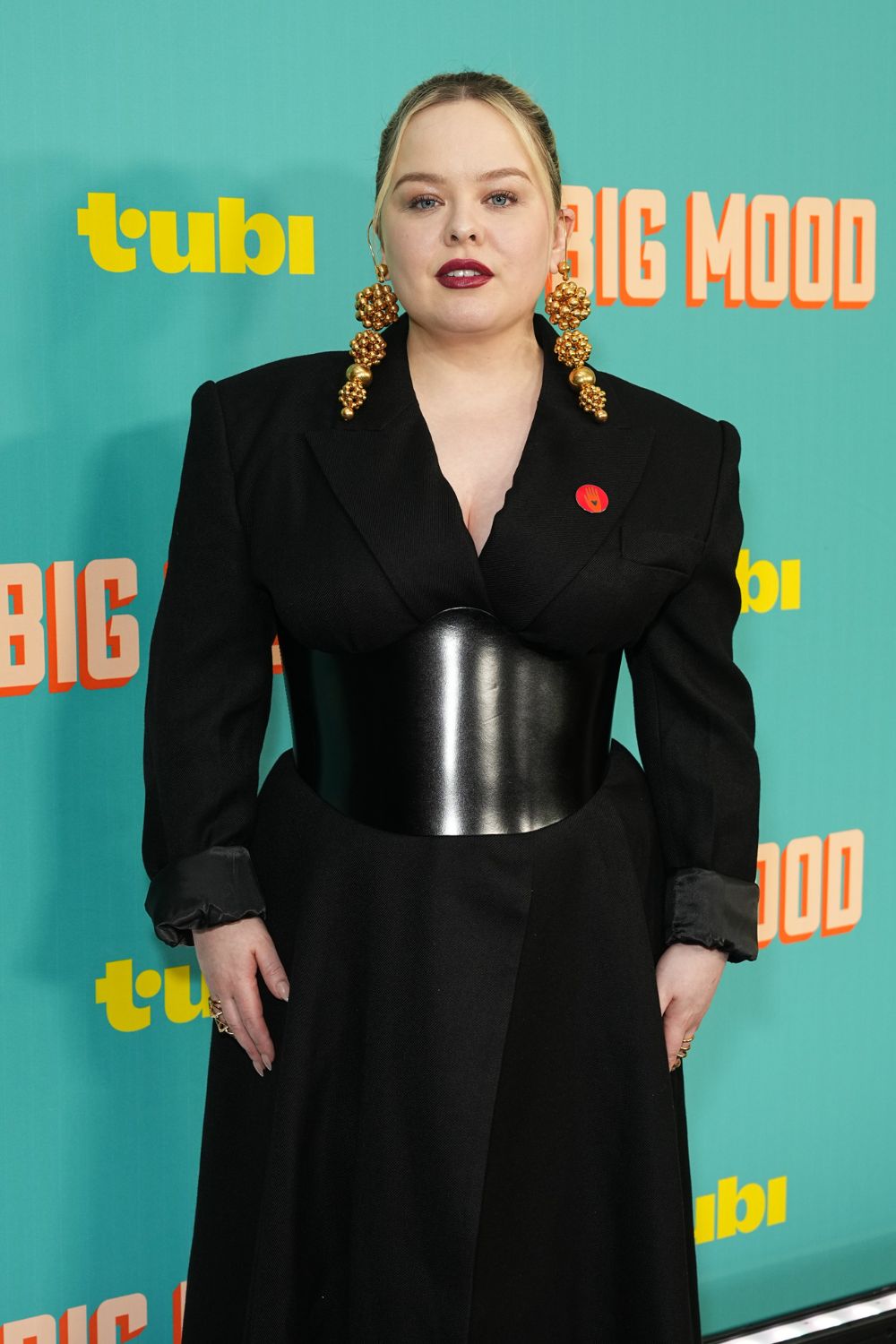
Like any art, fashion holds up a mirror to our times, and while it can’t solve complex issues relating to race, religion, gender and sexuality, it can certainly highlight them. When the late Queen Elizabeth wore a blue and yellow hat to open parliament in 2017, it was swiftly dubbed “an EU hat” because of its likeness to the European flag. While monarchs are supposed to remain neutral, it was hard not to interpret her headwear as support for Remain. Whoever you are, in these divisive times, neutrality isn’t always an option.
“War - what is it good for? Absolutely nothing,” sang The Temptations in 1969, one of many anti-war songs that have, tragically, done absolutely nothing to prevent war. While there’s still a place for the protest song, the social media age has popularised a new form of protest; one that doesn’t involve singing a note. Or even opening your mouth.